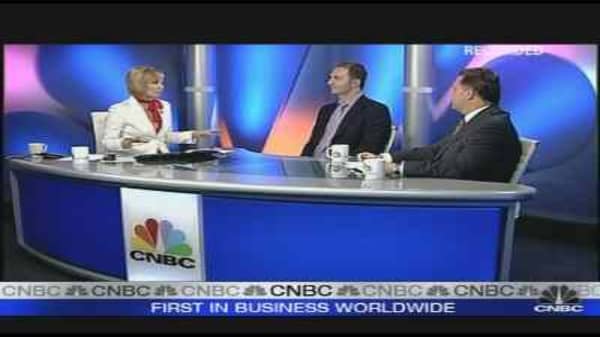As the dollar amounts involved in just one trade in oil soar, exchanges are demanding increasing margins to protect themselves in the event of a default.
The problem is particularly evident in the over-the-counter market, where the vast majority of physical oil trading is done via direct counterparties, who themselves are also being forced to demand higher margins, energy traders told CNBC Europe.
Smaller operators are finding it hard to find financing, and many have even been forced out of the market, said Johannes Benigni, Managing Director of JBC Energy.
"This means it is only a 'big boys' business," Benigni said. "Several banks are facing credit issues and finding it increasingly difficult to finance big sums."
Nymex raised initial margin rates for clearing members to $8,750 from $7,750 for July-to-December crude late on Monday. This is the second time the exchange has done so in less than one month. LCH Clearnet, which clears trades for Intercontinental Exchange, lifted margins on traded products earlier last month and it is largely expected that it will have to follow suit with more hikes soon. (Which way will prices go? See video).
Adding pressure is increased volatility.
A relatively small trade in oil is enough now to move the market significantly, especially as the difference between what buyers and sellers are asking and offering, the bid-ask spread, is widening, one trader told CNBC Europe.
Further down the futures curve, liquidity is particularly dry as traders struggle to correctly value oil for future delivery following last week's dramatic price moves.
It is not uncommon in this climate to see traders returning in the morning to find previously balanced books suddenly millions of dollars out of kilter.
"One of the reasons the market was rising from $100 (a barrel) to $135 was the fact that producers had partly to cover their hedges," Benigni said.
Wheat Market Redux?
The situation could lead to the one faced earlier this year in the wheat market, when margin calls on hedges were so vast that companies that need hedges for genuine buisnes purposes couldn't afford them and had to run riskier, un-hedged businesses, the Gartman Letter said Monday.
"This shall happen in crude oil," Dennis Gartman wrote. "The banks are calling in loans and refusing to make new ones for hedge purposes, and they do so at market tops for that is how banks function … by committee; at the worst of times.” (See more of Gartman's views in the accompanying video).
But others have welcomed Nymex's attempt to rein in positions.
"The exchange’s job is to run an orderly market and in current volatility and price uncertainty they had little option," Rob Laughlin, a broker at MF Global, said in his morning note.




